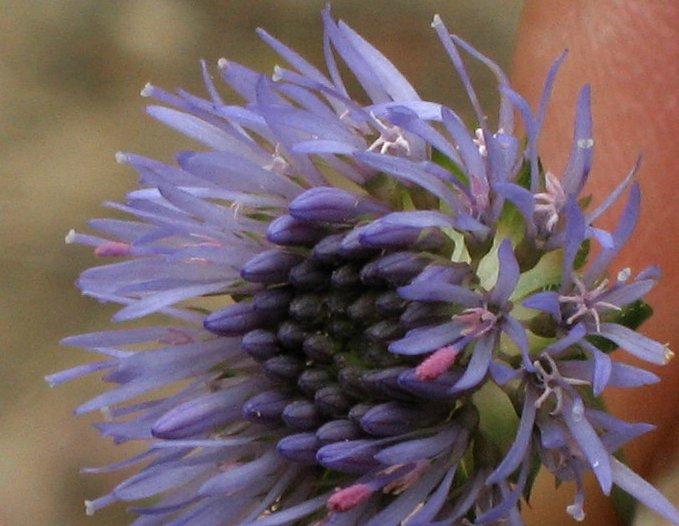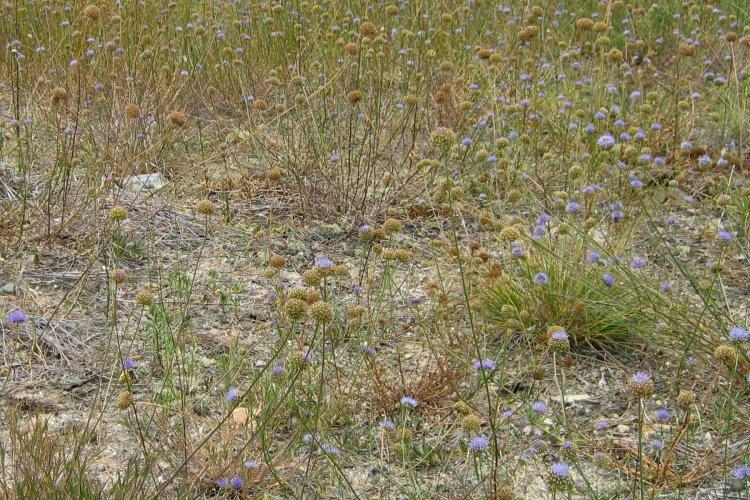Sheep's Bit (Jasione montana):
|
||||


Sheep's bit (Jasione montana) has been introduced as an ornamental both
to eastern and western North American costal states. This European
annual or biennial is naturally distributed all over Europe—from
Northern Ireland to Greece and all the way from Britain to European
Russia an even farther, to the very Urals Mountain Range, the landmark
separating Europe from Asia. A plant of dry sandy and rocky habitats
with poor soil, Jasione montana occurs in open sandy woods, on dry
rocks, or simply on pure sand both inland and on the coast.
The inflorescence of this attractive plant is a dense head composed of
tiny blue florets, which is quite unusual in the bluebell family (Campanulaceae),
where it belongs, hence it is often mistakenly taken for a teasel (Dipsacaceae) family
member—something like scabious (Knautia). A closer inspection of each tiny
campanulate floret, however, helps attribute the plant properly.
Lured by the innocent appearance and unsophisticated growing
requirements of sheep's bit, gardeners keep reintroducing it to North
America. Profit-minded nursery dealers find it easy to collect the
abundant seed and thus satisfy the growing demand, which they stimulate
by on-line advertising.
In fact the plant is already well established in southeastern
Massachusetts. It has become alarmingly abundant along highways 495,
and 128, where the roadside is continuous open mowed lawn. During the
flowering time (July/August), one can drive miles and miles
along the blue stripe of sheep's bit in this area. You can find large
infestations not only on roadsides, but also in any dry sandy disturbed
habitat, for example, under the powerlines crossing Myles Standish State
Forest and all around, on the perimeter of that park. A threat
from this invader for Myles Standish State Forest, a unique pitch-pine
barrens community in eastern MA, is now imminent.
From the sandy southeast Jasione montana is actively spreading to inland
MA. This year it has become very conspicuous along small roads in
Randolph/Braintree area reaching west to Newton along Rt. 128/95. North
of Boston so far it is not that prominent.
By the time sheep's bit will be claimed invasive
and banned from all sales, the fight will be already lost, as it
happened multiple times with other invasives introduced as ornamentals.
Once Sheep's bit finds its way to Rocky Mountain States, it must be
disastrous.
Irina Kadis 9 Aug 2009 |
||||
|
|
||||
|
||||